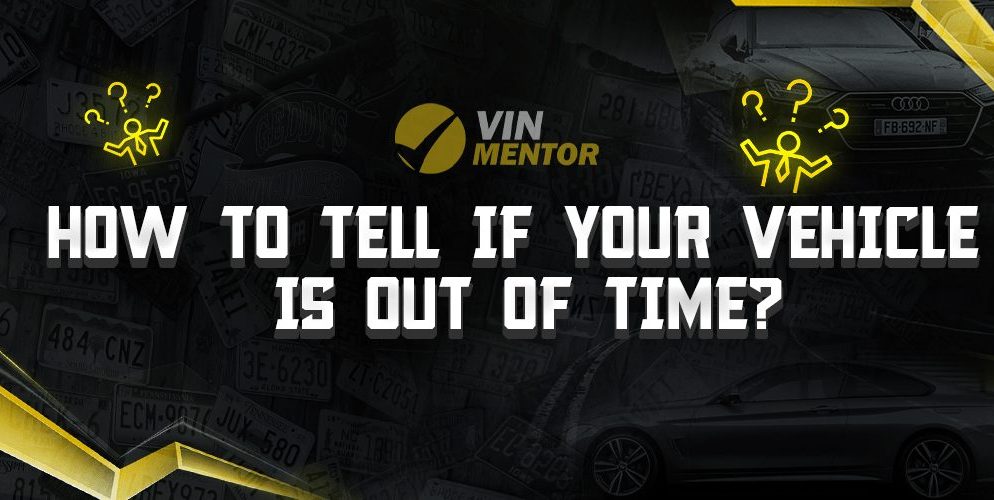

As a vehicle owner, it’s essential to stay vigilant and be aware of any signs that may indicate your vehicle’s timing is off. Ignoring or overlooking this issue can lead to significant engine damage and costly repairs. In this article, we will explore the key indicators that your vehicle may be out of time, helping you identify potential problems and take appropriate action. Read on to learn more about the signs of a vehicle that is out of time.
Key Takeaways
- Recognizing the signs of a vehicle that is out of time can help you address the issue before it causes severe damage.
- Unusual engine noises, poor performance, and misfires are potential indicators of timing issues.
- Checking the timing belt or chain and seeking professional inspection are crucial steps in diagnosing a timing problem.
- Timely maintenance, including regular timing belt replacements, can help prevent timing-related issues.
How Can You Determine If the Timing of Your Vehicle Is Off?
Ensuring that the timing of your vehicle is properly synchronized is vital for its optimal performance. Detecting any timing issues early on can help prevent further damage to the engine. So here are some signs that indicate your vehicle may be out of time. From unusual engine noises to poor performance and misfires, these indicators can serve as warning signals. By being attentive to these factors, you can maintain the proper timing of your vehicle and keep it running smoothly.
Unusual Engine Noises
When a vehicle’s timing is off, it can result in abnormal engine noises. Pay attention to any ticking, knocking, or clattering sounds coming from the engine compartment. These noises may occur at idle or while accelerating and can indicate a timing problem that needs to be addressed.
Poor Performance and Misfires
A vehicle that is out of time may experience a decrease in performance. If you notice sluggish acceleration, reduced power, or a decrease in fuel efficiency, it could be a sign of timing issues. Additionally, misfires, where the engine stumbles or hesitates during operation, can be an indication of incorrect timing.
Check the Timing Belt or Chain
The timing belt or chain is responsible for synchronizing the rotation of the engine’s camshaft and crankshaft. Over time, these components can wear out or become damaged, causing timing problems. If your vehicle has a timing belt, check the manufacturer’s recommended replacement interval and inspect its condition regularly. For vehicles with a timing chain, listen for rattling or slapping noises that may indicate chain wear.
Seek Professional Inspection
If you suspect that your vehicle is out of time or experiencing timing-related issues, it’s best to consult a qualified mechanic or technician. They have the expertise and diagnostic tools to assess the timing system accurately. A professional inspection can confirm if the timing is indeed off and identify any underlying causes contributing to the problem.
Timely Maintenance and Replacements
Regular maintenance is key to preventing timing-related issues. Following the manufacturer’s recommended maintenance schedule, including timing belt or chain replacements, is crucial. Neglecting these maintenance tasks can increase the risk of timing problems and engine damage in the long run.
Conclusion
Recognizing the signs of a vehicle that is out of time is essential for maintaining the health and longevity of your vehicle’s engine. Unusual engine noises, poor performance, and misfires are key indicators that should not be ignored. Checking the timing belt or chain regularly and seeking professional inspection when needed are crucial steps in diagnosing and addressing timing issues.
To ensure a comprehensive understanding of your vehicle’s history and potential underlying problems, consider performing a VIN check. Accessing reliable information about previous maintenance records, accidents, or repairs can help you make informed decisions about maintaining a vehicle. Choose from our recommended best VIN Check Websites list to perform a thorough VIN check and gain valuable insights.
FAQ
What is the timing of a vehicle, and why is it important?
The timing of a vehicle refers to the precise synchronization between the engine’s camshaft and crankshaft. It ensures that the valves open and close at the right time, allowing for optimal combustion and engine performance. Proper timing is crucial for the overall efficiency, power, and longevity of the engine.
What are the common causes of timing issues in vehicles?
Timing issues can occur due to various reasons, including:
- Worn or damaged timing belt or chain
- Incorrect installation of the timing belt or chain
- Timing belt or chain tensioner failure
- Misalignment of timing components
- Engine overheating or severe vibration
Can I visually inspect the timing belt or chain to determine if it needs replacement?
In most cases, the timing belt or chain is located inside the engine and may not be easily visible. It’s recommended to consult your vehicle’s manual or a qualified mechanic to determine the manufacturer’s recommended replacement interval and inspection methods.
What are the risks of driving a vehicle that is out of time?
Driving a vehicle that is out of time can lead to serious engine damage. The valves and pistons may collide, causing bent valves or even cylinder head damage. These repairs can be costly and time-consuming. It is essential to address timing issues promptly to avoid further damage.
How often should I replace the timing belt or chain?
The replacement interval for timing belts varies depending on the make and model of the vehicle. Generally, it is recommended to replace the timing belt between 60,000 and 100,000 miles. Timing chains are typically more durable but may still require inspection and occasional replacement if signs of wear or damage are present.
Can I fix a timing issue myself, or should I seek professional help?
Timing-related repairs can be complex and require specialized knowledge and tools. It is generally recommended to seek professional assistance from a qualified mechanic or technician with experience in engine timing systems. They can accurately diagnose the issue and perform the necessary repairs or replacements.












